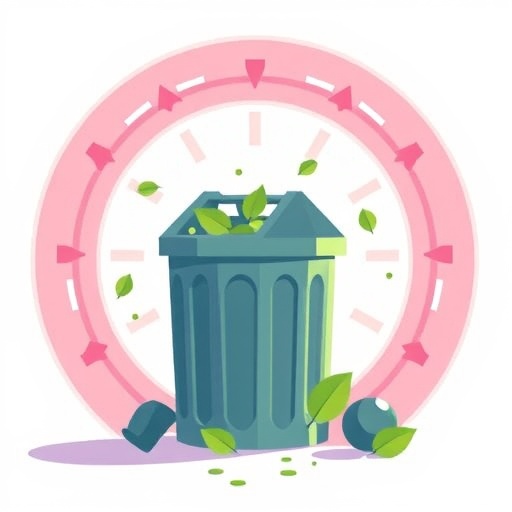Artificial Intelligence (AI) is increasingly emerging as a transformative force across various sectors, and solid waste management is no exception. In India, a country grappling with significant challenges related to urbanization, population growth, and environmental sustainability, the incorporation of AI technologies into solid waste management practices has become vital. This innovation not only promises enhanced efficiency and effectiveness in waste management systems but also offers unprecedented opportunities for environmental conservation and public health improvements.
As the Indian urban landscape continues to evolve, solid waste management practices must adapt in order to address the mounting pressures exerted by urban populations. With the rise in per capita waste generation, cities face the daunting prospect of managing waste effectively while also minimizing adverse impacts on the environment. Current methods are often antiquated, characterized by manual labor and inadequate technological integration. In this context, AI tools can bring advanced data analytics, predictive modeling, and automation into the waste management processes, providing actionable insights to tackle these issues more holistically.
One of the fundamental ways in which AI can enhance solid waste management is through the implementation of smart waste segregation systems. Traditional waste segregation relies heavily on human intervention, leading to inefficiencies and the potential for contamination. AI-powered systems, leveraging computer vision and machine learning, can automatically identify and sort waste materials into appropriate categories—recyclables, organic waste, and non-recyclables—before they reach recycling facilities. This automation reduces the burden on human workers and significantly increases the accuracy of separation processes, ultimately leading to higher recycling rates.
Moreover, predictive analytics powered by AI can optimize collection routes for waste management vehicles. By utilizing historical data and real-time inputs, AI algorithms can forecast waste accumulation patterns and calculate the most efficient routes for waste collection. This not only improves operational efficiency by reducing fuel consumption and greenhouse gas emissions but also decreases the overall cost of waste management. Cities that harness these AI capabilities will likely see improvements in service delivery, better resource allocation, and enhanced responses to changing waste generation trends.
In addition to optimizing collection and segregation, AI can play a pivotal role in waste processing by facilitating more effective treatment methods. For instance, machine learning models can assist in the development of advanced recycling techniques that analyze material composition and help design tailored processes for specific waste types. Furthermore, AI-driven systems can predict failures in treatment plants before they occur, allowing for preemptive maintenance and ensuring uninterrupted operations. This predictive capability is critical to minimizing toxic outputs and maximizing resource recovery from waste.
Education and community engagement are other critical aspects of successful solid waste management where AI can contribute meaningfully. AI platforms can serve as tools for awareness programs, offering interactive means for citizens to learn about waste segregation, recycling benefits, and sustainable practices through gamified experiences or chatbots. By making information readily accessible and engaging, communities are more likely to participate actively in waste management initiatives.
Implementation of AI in solid waste management is not without its challenges. Regulatory frameworks, infrastructure, and data privacy issues must be addressed to create a conducive environment for the deployment of such technologies. Moreover, ensuring equitable access to AI tools across various socio-economic segments is crucial to prevent exacerbating existing inequalities in waste management services. Therefore, a collaborative approach involving stakeholders from government entities, the private sector, and civil society is essential for successful implementation.
While the potential of AI in solid waste management is clear, it is equally important to recognize the importance of continuous research and innovation in this field. The steps taken today in harnessing AI could set the foundation for future breakthroughs that further redefine how waste is managed. This ongoing research will require a multidisciplinary approach, bringing together experts from waste management, environmental science, data science, and public policy to ensure that AI applications are not only effective but also ethically grounded.
India’s commitment to advancing solid waste management through AI can serve as a model for countries facing similar challenges. As nations around the globe grapple with the consequences of rapid urbanization and climate change, the lessons learned from India’s experience can inform strategies that leverage technology for sustainable waste management. Sharing knowledge, successes, and failures on a global platform will be vital in catalyzing innovation and fostering resilience in waste management once and for all.
Furthermore, intelligent waste management systems can lead to the creation of more sustainable urban environments. With AI’s ability to analyze vast amounts of data, cities can better plan their waste management strategies, aligning them with broader urban sustainability goals. This synergy between AI technology and urban planning can help create cleaner, healthier cities where waste generation is minimized, and resource recovery is maximized, aligning economic incentives with ecological imperatives.
In conclusion, the application of AI in solid waste management in India presents a significant opportunity for addressing pressing environmental challenges. As traditional waste management approaches struggle to keep pace with increasing demands, AI-driven solutions offer promising avenues for enhanced efficiency, resource recovery, and community engagement. However, the successful integration of these technologies will require significant collaboration, regulatory support, and ongoing innovation to meet both current and future waste management challenges.
As we stand at a pivotal moment in the evolution of solid waste management practices, embracing the potential of AI could very well shape the trajectory of urban sustainability efforts for generations to come.
Subject of Research:
Solid waste management in India utilizing artificial intelligence technologies.
Article Title:
Artificial intelligence in solid waste management in India: current status and future prospects.
Article References:
Gurjar, R.S., Kumar, S. & Kuila, A. Artificial intelligence in solid waste management in India: current status and future prospects.
*i>Environ Monit Assess 197, 1278 (2025). https://doi.org/10.1007/s10661-025-14735-7
Image Credits:
AI Generated
DOI:
10.1007/s10661-025-14735-7
Keywords:
Artificial Intelligence, Solid Waste Management, India, Urban Sustainability, Predictive Analytics, Smart Waste Segregation, Community Engagement, Recycling, Environmental Sustainability.




